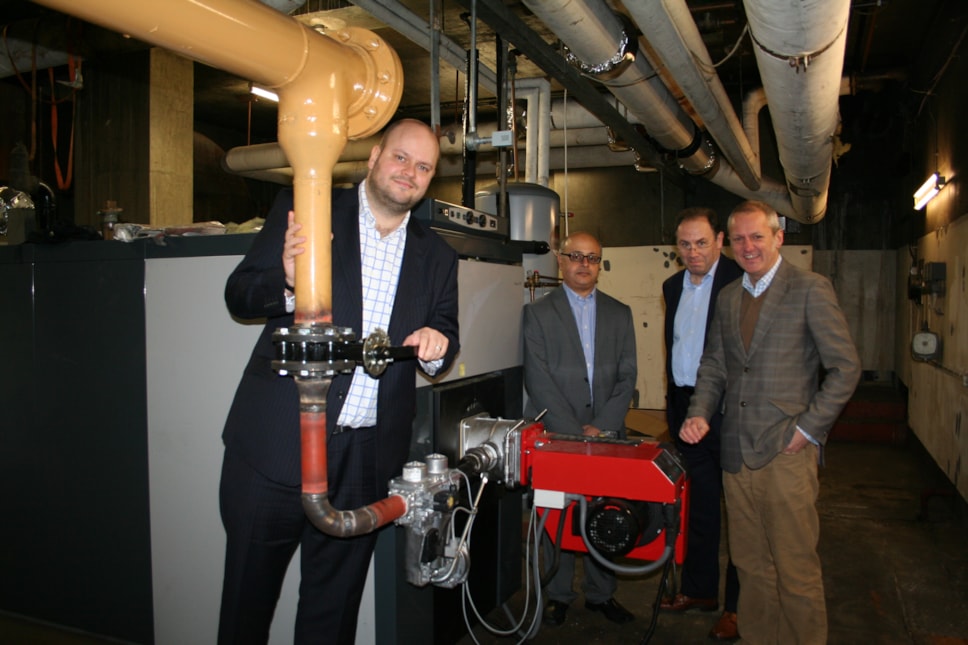
Pioneering ECO scheme benefits Hackney Homes residents
More than 190 Hackney residents will benefit from more affordable heating and hot water as part of a pioneering environmental scheme which sees energy companies fund green improvements.
The communal heating system in Fellows Court estate, Shoreditch is the UK’s first ECO-funded upgraded district heating system.
The project is part of the Energy Company Obligation (ECO) programme and will reduce carbon emissions by nearly 1,000 tonnes each year. ECO funding was introduced in January 2013 to reduce energy consumption and support people living in fuel poverty.
Hackney Council and Hackney Homes working in partnership with energy company, Cenergist and funded by NPower through ECO, installed new communal gas heating to replace old, inefficient and expensive oil fired boilers.
Nick Gardner from NPower said: “it was a privilege to work with Hackney Homes on this project that promoted the use of low carbon community heating and the use of ECO funding to finance the required heating works – it provides an excellent example of how local authorities can bring forward such projects”
We are always looking for new ways to help those in fuel poverty and were keen to use this new funding to support our residents. It’s no surprise then, that we were the first in the country to pioneer this new approach, which will also deliver significant carbon savings for the borough. Hopefully this project will inspire other authorities to follow suit, and in Hackney we are committed to using ECO funding to install further, new and more efficient communal heating schemes for our residents. We hope that residents appreciate the new heating system over the winter months as it should be more reliable – bringing a bit of extra warmth while helping with energy bills.Cllr Philip Glanville, Cabinet Member for Hackney Homes and Regeneration Estates, Hackney Council
